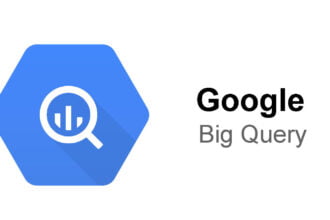In a world of plenty, algorithms may be our saving grace as they map, sort, reduce, recommend, and decide how airplanes fly, packages ship, and even who shows up first in online dating profiles. But in a world where algorithms increasingly determine what we see and don’t see, there’s danger of filtering gone too far.
In a world of plenty, algorithms may be our saving grace as they map, sort, reduce, recommend, and decide how airplanes fly, packages ship, and even who shows up first in online dating profiles. But in a world where algorithms increasingly determine what we see and don’t see, there’s danger of filtering gone too far.
The global economy may be a wreck, but data volumes keep advancing. In fact, there is so much information competing for our limited attention, companies are increasingly turning to compute power and algorithms to make sense of the madness.
The human brain has its own methods for dealing with information overload. For example, think about millions of daily input the human eye receives and how it transmits and coordinates information with our brain. A task as simple as stepping a shallow flight of stairs takes incredible information processing. Of course, not all received data points are relevant to the task of walking a stairwell, and thus the brain must decide which data to process and which to ignore. And with our visual systems bombarded with sensory input from the time we wake until we sleep, it’s amazing the brain can do it all.
But the brain can’t do it all—especially not with the onslaught of data and information exploding at exponential rates. We need what author Rick Bookstaber calls “artificial filters,” computers and algorithms to help sort through mountains of data and present the best options. These algorithms are programmed with decision logic to find needles in haystacks, ultimately presenting us with more relevant choices in an ocean of data abundance.
Algorithms are at work all around us. Google’s PageRank presents us relevant results—in real time—captured from web server farms across the globe. Match.com sorts through millions of profiles, seeking compatible profiles for subscribers. And Facebook shows us friends we should “like.”
But algorithmic programming can go too far. As humans are more and more inundated with information, there’s a danger in turning over too much “pre-cognitive” work to algorithms. When we have computers sort friends we would “like”, pick the most relevant advertisements or best travel deals, and choose ideal dating partners for us, there’s a danger in missing the completely unexpected discovery, or the most unlikely correlation of negative one. And even as algorithms “watch” and process our online behavior and learn what makes us tick, there’s still a high possibility that results presented will be far and away from what we might consider “the best choice.”
With a data flood approaching, there’s a temptation to let algorithms do more and more of our pre-processing cognitive work. And if we continue to let algorithms “sort and choose” for us – we should be extremely careful to understand who’s designing these algorithms and how they decide. Perhaps it’s cynical to suggest otherwise, but in regards to algorithms we should always ask ourselves, are we really getting the best choice, or getting the choice that someone or some company has ultimately designed for us?
Question:
- Rick Bookstaber makes the case that personalized filters may ultimately reduce human freedom. He says, “If filtering is part of thinking, then taking over the filtering also takes over how we think.” Are there dangers in too much personalized filtering?
[Paul Barsch works for Teradata, sponsor of Smart Data Collective]






